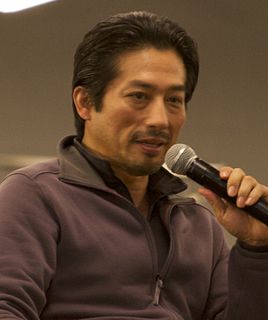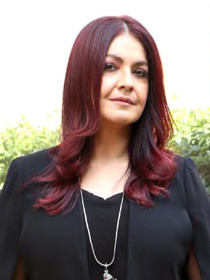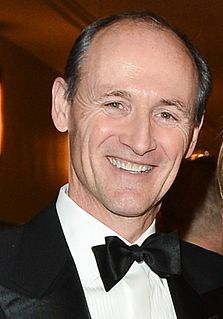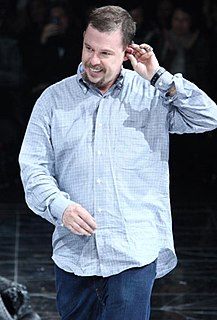A Quote by Chris Pine
With film, oftentimes you work in a vacuum and then you get on a high wire and then you try it and then the day's over and that piece of film exists somewhere in a vault for 1000,000 years and that's it.
Related Quotes
So that would be my input and I'd go off and I'd work on another film, and then I'd catch up with them later on in the year. We just kind of nursed the piece along. There was no timeframe. We didn't have anyone pushing us except ourselves to make the film, and a desire. And then the organic kind of naming of Roger; then it happened really fast.
I have seen this whole process of films releasing, becoming hits or flops, for too long now to expect things to do well. If I expect a film to do well, then it is for somebody else's sake, not for my own. I do my work, and if you feel that my work is improving from film to film, then I have done my part of the job.
So, we get into the first piece. Then, layer, layer, layer, do all of this. Then we jump into the trousers. Then I'm zip-tied in to this bottom piece and glued into the feet. So you can't get out. There is a zipper...somewhere. But it'll cost you money to find out where. And to actually make it functional, it's pretty ridiculous. So, I plan ahead.
When you're making a film, you don't really have time to consider what the whole of your film is. And then, when you're releasing your film and promoting your film, you're looking at it in a different way. Then, as you move away from it, you start to look at it objectively and think, 'What could I have done better?'
Promoting a film can get tiring but if you find a clever way to promote it, it can be fun. Also, it is not fair to yourself and the film if you don't promote it. You've worked hard for the film for the past six or eight months and then if you don't give it your all and create awareness among the people then it is not fair.
When we put the antlers on the model and then draped over it the lace embroidery that we had made, we had to poke them through a £2,000 piece of work. But then it worked because it looks like she's rammed the piece of lace with her antlers. There's always spontaneity. You've got to allow for that in my shows.
And Mel [Brooks] - you have to understand this important point - he had done "The Producers" for $50,000 over two years, and he didn't make a penny from it. And then he did "The Twelve Chairs" - $50,000 for two more years and didn't make a penny from it. That's four years of work. And then they offered him quite a bit of money to direct "Young Frankenstein," and he took it.
Some things definitely work better on film than in books. Introspection is great in books but it doesn't work on film. Anything with high intensity, whether it's a love scene, a car chase, a fight scene - those things work so well on film and oftentimes they can tell a much broader part of the story.
As soon as you start making a film that's expensive then the studio wants total control over all elements of it because they want to get all their money back. If you make a smaller film you can try a lot more things because you can have control over it and not just be a hired director. The lower the budget the more freedom you have.
I'll generally write out every scene that's in the film on a couple of pieces of paper, just with a little one-line. And then I can scan it a bit and go, 'This first third of the film, generally, I'm kind of calm.' Then I might do something on one piece of paper that just relates to the energy of the character.




































